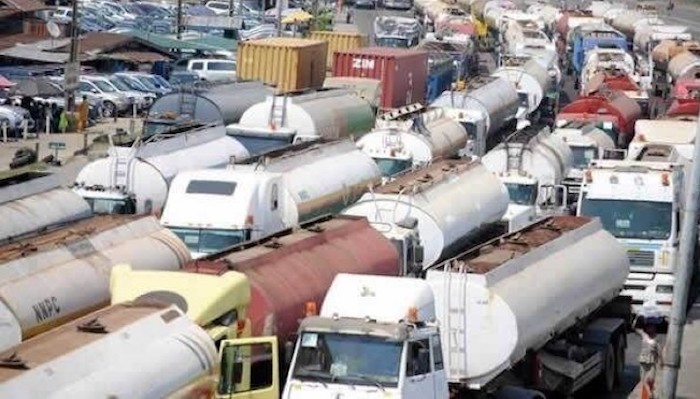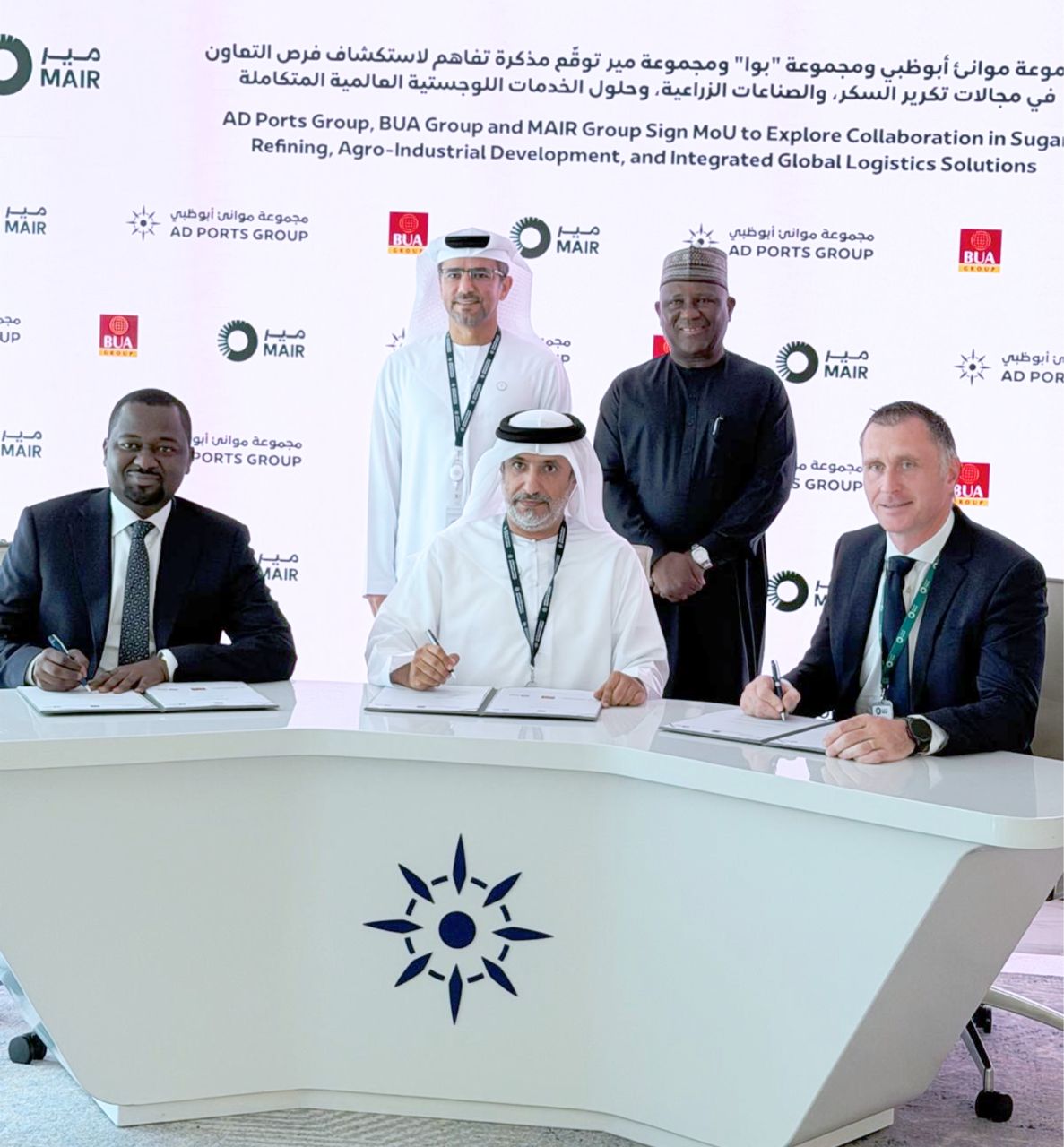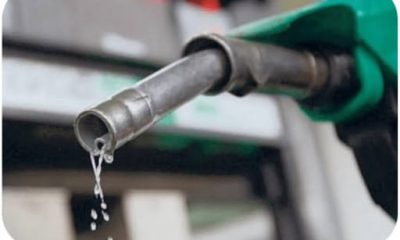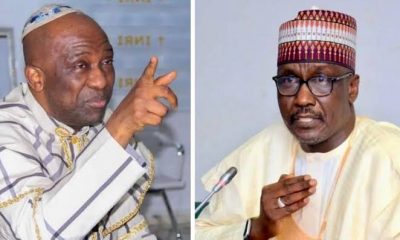Business
P’Harcourt refinery: Marketers threaten boycott as NNPCL juggles petrol price

P’Harcourt refinery: Marketers threaten boycott as NNPCL juggles petrol price
Oil marketers have outlined the conditions that will make them patronise the newly rehabilitated Port Harcourt Refinery Company in Rivers State.
PHRC, under the management of the Nigerian National Petroleum Company Limited, must dispense its refined petroleum products below the prices of the Dangote Petroleum Refinery, the dealers stated.
But the NNPCL, in reaction to claims on Wednesday that its petrol price was about N1,045/litre, stated that the refinery had yet to release its prices, as products from the plant were currently dispensed to only NNPCL stations.
The oil firm’s spokesperson, Olufemi Soneye, revealed that the company was still reviewing its prices and had yet to commence bulk sales, as its purchasing portal remained closed.
Meanwhile, it was also gathered on Wednesday that oil marketers imported 105.67 million litres of petrol into the country in five days.
Marketers confirmed that NNPC was selling petrol at N1,045/litre, stressing that they may be compelled to opt for petrol importation as a means of meeting local demands.
The PUNCH exclusively gathered that a total sum of 78,800 metric tonnes representing 105.67 million litres of petrol was imported into the country in the last five days spanning November 23 and November 28.
On Tuesday, the 60,000-capacity Port-Harcourt refinery resumed operations after years of inactivity, drawing initial praise from Nigerians and industry stakeholders.
The NNPC said the newly rehabilitated complex of the old Port Harcourt refinery, which had been revamped and upgraded with modern equipment, is operating at a refining capacity of 70 per cent of its installed capacity.
NNPC added that diesel and Pour Fuel Oil would be the highest output from the refinery, with a daily capacity of 1.5 million litres and 2.1 million litres, respectively.
This is followed by a daily output of Straight-Run Gasoline (Naphtha) blended into 1.4 million litres of Premium Motor Spirit (petrol), 900,000 litres of kerosene, and low-pour fuel oil of 2.1 million litres.
It was stated that about 200 trucks of petrol would be released into the Nigerian market daily.
However, claims that the national oil firm’s PMS price was higher than that of Dangote triggered diverse reactions from marketers.
The National Publicity Secretary of the Independent Petroleum Marketers Association of Nigeria, Chinedu Ukadike, told one of our correspondents that though NNPC had yet to release any price for the products from the refurbished Port Harcourt refinery, a high price would discourage marketers.
Dangote currently sells his petrol at N970/litre, while imported petrol is around that price.
Ukadike, however, noted that there was the possibility that the NNPC would review its prices downward when the Port Harcourt refinery comes fully on stream.
He confirmed that the state-owned oil company sells a litre of PMS at N1,040 or N1,045 while the Dangote refinery just reviewed its price from N990 to N970 for marketers buying a minimum of two million litres.
Ukadike did not mince words when he said independent marketers would only buy from the NNPC if its price is cheaper than that of Dangote or vice versa.
“With the Port Harcourt refinery now working, we are anticipating that any moment from now, NNPC will give us its price. Once NNPC releases its price, we will start loading from NNPC. That is subject to if it is cheaper than that of Dangote.
“The last NNPC price was N1,040 and N1,045 per litre. But I know there will be a review of prices because there has been a crash in prices globally. So, we are expecting a review. Once that review is done, I will be able to give you the actual price. I know they are reviewing it. They are on top of the matter,” the IPMAN spokesman said.
The latest development also indicates that oil marketers may commence the importation of fuel if the prices set by both domestic refineries surpass their profit margins, thereby making it more financially viable for them to rely on imported fuel rather than locally produced stock.
The National Public Relations Officer of the Petroleum Products Retail Outlets Owners Association of Nigeria, Dr Joseph Obele, had earlier said NNPC petrol was N75 higher than the N970/litre offered by Dangote refinery.
However, PETROAN’s President, Billy Gillis-Harry, in a statement denied the claim, stressing that no price has been released by the national oil firm.
He explained that members of the association bought PMS based on the old pricing structure and are still waiting for the updated prices.
The statement read, “The National Headquarters of Petroleum Products Retail Outlet Owners Association of Nigeria, PETROAN Abuja would Like to Inform the media and the general public that no new price for PMS has been released by the NNPC port Harcourt refinery.
“Members of PETROAN only bought PMS with the old pricing template awaiting
new prices. We are excited that the production and loading of refined petroleum products have commenced at the Port Harcourt Refinery and we are expectant that soon the price of PMS will be stated by NNPC to the benefit of Nigerians.”
NNPC reacts
But in a message sent to journalists on Wednesday night, the NNPC spokesperson said the national oil firm had not started selling its products from the Port Harcourt refinery to other oil marketers.
He was reacting to an earlier claim by the Petroleum Products Retail Outlets Owners Association of Nigeria that the newly rehabilitated Port-Harcourt refinery was selling at N1,045/litre to oil marketers.
He noted that only NNPCL retail stations are receiving products from the refinery.
He said, “We have not yet commenced bulk sales, and we have not yet opened the purchase portal as we are still finalizing the necessary processes.”
He further stated its current stock was procured from the Dangote Refinery and includes fees and levies.
“At present, the products we are selling are what we bought from the Dangote Refinery, which includes NMDPRA fees. The product from PH is currently for our retail stores. Our prices are regularly reviewed and adjusted as required.”
Bank
Alpha Morgan to Host 19th Economic Review Webinar

Alpha Morgan to Host 19th Economic Review Webinar
In an economy shaped by constant shifts, the edge often belongs to those with the right information.
On Wednesday, February 25, 2026, Alpha Morgan Bank will host the 19th edition of its Economic Review Webinar, a high-level thought leadership session designed to equip businesses, investors, and individuals with timely financial and economic insight.
The session, which will hold live on Zoom at 10:00am WAT and will feature economist Bismarck Rewane, who will examine the key signals influencing Nigeria’s economic direction in 2026, including policy trends, market movements, and global developments shaping the local landscape.
With a consistent track record of delivering clarity in uncertain times, the Alpha Morgan Economic Review continues to provide practical context for decision-making in a dynamic environment.
Registration for the 19th Alpha Morgan Economic Review is free and can be completed via https://bit.ly/registeramerseries19
It is a bi-monthly platform that is open to the public and is held virtually.
Visit www.alphamorganbank to know more.
Business
GTBank Launches Quick Airtime Loan at 2.95%

GTBank Launches Quick Airtime Loan at 2.95%
Guaranty Trust Bank Ltd (GTBank), the flagship banking franchise of GTCO Plc, Africa’s leading financial services group, today announced the launch of Quick Airtime Loan, an innovative digital solution that gives customers instant access to airtime when they run out of call credit and have limited funds in their bank accounts, ensuring customers can stay connected when it matters most.
In today’s always-on world, running out of airtime is more than a minor inconvenience. It can mean missed opportunities, disrupted plans, and lost connections, often at the very moment when funds are tight, and options are limited. Quick Airtime Loan was created to solve this problem, offering customers instant access to airtime on credit, directly from their bank. With Quick Airtime Loan, eligible GTBank customers can access from ₦100 and up to ₦10,000 by dialing *737*90#. Available across all major mobile networks in Nigeria, the service will soon expand to include data loans, further strengthening its proposition as a reliable on-demand platform.
For years, the airtime credit market has been dominated by Telcos, where charges for this service are at 15%. GTBank is now changing the narrative by offering a customer-centric, bank-led digital alternative priced at 2.95%. Built on transparency, convenience and affordability, Quick Airtime Loan has the potential to broaden access to airtime, deliver meaningful cost savings for millions of Nigerians, and redefine how financial services show up in everyday life, not just in banking moments.
Commenting on the product launch, Miriam Olusanya, Managing Director of Guaranty Trust Bank Ltd, said: “Quick Airtime Loan reflects GTBank’s continued focus on delivering digital solutions that are relevant, accessible, and built around real customer needs. The solution underscores the power of a connected financial ecosystem, combining GTBank’s digital reach and lending expertise with the capabilities of HabariPay to deliver a smooth, end-to-end experience. By leveraging unique strengths across the Group, we are able to accelerate innovation, strengthen execution, and deliver a more integrated customer experience across all our service channels.”
Importantly, Quick Airtime Loan highlights GTCO’s evolution as a fully diversified financial services group. Leveraging HabariPay’s Squad, the solution reinforces the Group’s ecosystem proposition by bringing together banking, payment technology, and digital channels to deliver intuitive, one-stop experiences for customers.
With this new product launch, Guaranty Trust Bank is extending its legacy of pioneering digital-first solutions that have redefined customer access to financial services across the industry, building on the proven strength of its widely adopted QuickCredit offering and the convenience of the Bank’s iconic *737# USSD Banking platform.
About Guaranty Trust Bank
Guaranty Trust Bank (GTBank) is the flagship banking franchise of GTCO Plc, a leading financial services group with a strong presence across Africa and the United Kingdom. The Bank is widely recognized for its leadership in digital banking, customer experience, and innovative financial solutions that deliver value to individuals, businesses, and communities.
About HabariPay
HabariPay is the payments fintech subsidiary of GTCO Plc, focused on enabling fast, secure, and accessible digital payments for individuals and businesses. By integrating payments and digital technology, HabariPay supports innovative services that make everyday financial interactions simpler and more seamless.
Enquiries:
GTCO
Group Corporate Communication
[email protected]
+234-1-2715227
www.gtcoplc.com
Business
BUA Group, AD Ports Group and MAIR Group Launch Strategic Plan for World-Class Sugar and Agro-Logistics Hub at Khalifa Port

BUA Group, AD Ports Group and MAIR Group Sign MoU to Explore Collaboration in Sugar Refining, Agro-Industrial Development, and Integrated Global Logistics Solutions
Abu Dhabi, UAE – Monday, 16th February 2026
BUA Group, AD Ports Group, and MAIR Group of Abu Dhabi today signed a strategic Memorandum of Understanding (MoU) to explore collaboration in sugar refining, agro-industrial development, and integrated global logistics solutions. The partnership aims to create a world-class platform that strengthens regional food security, supports industrial diversification, and reinforces Abu Dhabi’s position as a hub for trade and manufacturing.
The proposed collaboration will leverage BUA Group’s industrial and logistics expertise, Khalifa Port’s world-class infrastructure, and AD Ports Group’s operational experience. The initiative aligns with the objectives of the UAE Food Security Strategy 2051, which seeks to position the UAE as a global leader in sustainable food production and resilient supply chains. It also aligns with Nigeria’s food production- and export-oriented agricultural transformation agenda, focused on scaling domestic capacity, strengthening value addition, improving post-harvest logistics, and unlocking new markets for Nigerian produce across the Middle East, Asia, and beyond.

Photo Caption: L-R: Kabiru Rabiu, Group Executive Director, BUA Group; Cpt. Mohammed J. Al Shamisi, MD/Group CEO, AD Ports Group; Saif Al Mazrouei, CEO (Ports Cluster) AD Ports Group; Abdul Samad Rabiu, Founder/Executive Chairman, BUA Group; and Steve Green, Group CFO, MAIR Group
Through structured aggregation, processing, storage, and maritime export channels, the partnership is designed to reduce supply chain inefficiencies, enhance traceability and quality standards, and also create a predictable trade corridor between West Africa and the Gulf.
BUA Group—recognised as one of Africa’s largest and most diversified conglomerates, with major investments across sugar refining, food production, flour milling, cement manufacturing, and infrastructure- brings extensive industrial expertise and large-scale operational capability to the venture. MAIR Group will provide strategic support in developing integrated logistics and agro-industrial solutions, creating a seamless platform for production, storage, and distribution.
Abdul Samad Rabiu, Founder and Chairman of BUA Group, said:
“This MoU marks an important milestone in BUA’s international expansion and reflects our long-term vision of building globally competitive industrial platforms. Together with AD Ports Group and MAIR Group, we aim to develop sustainable food production and logistics solutions that strengthen regional supply chains and support the UAE’s Food Security Strategy 2051.”
He further added that, “This partnership represents not just a commercial arrangement but a strategic food corridor anchored on shared economic ambition, resilient infrastructure, and disciplined execution, reinforcing long-term food security objectives for both nations.”
A representative of MAIR Group added:
“This collaboration underscores our commitment to advancing strategic industries in Abu Dhabi and building integrated solutions that reinforce the UAE’s position as a global hub for trade, food security, and industrial excellence.”
A spokesperson from AD Ports Group commented:
“Our partnership with BUA Group and MAIR Group highlights Khalifa Port’s role as a catalyst for high-impact industrial investments. This initiative will enhance regional food security, strengthen global trade connectivity, and support Abu Dhabi’s economic diversification goals.”
This MoU marks a historic collaboration that combines world-class infrastructure, industrial expertise, and strategic vision, setting the stage for a sustainable and resilient food and logistics ecosystem that will benefit the UAE, the region, and global markets alike.
-

 celebrity radar - gossips6 months ago
celebrity radar - gossips6 months agoWhy Babangida’s Hilltop Home Became Nigeria’s Political “Mecca”
-

 society6 months ago
society6 months agoPower is a Loan, Not a Possession: The Sacred Duty of Planting People
-

 news6 months ago
news6 months agoTHE APPOINTMENT OF WASIU AYINDE BY THE FEDERAL GOVERNMENT AS AN AMBASSADOR SOUNDS EMBARRASSING
-

 society5 months ago
society5 months agoReligion: Africa’s Oldest Weapon of Enslavement and the Forgotten Truth








